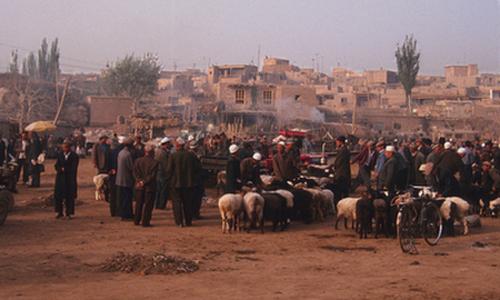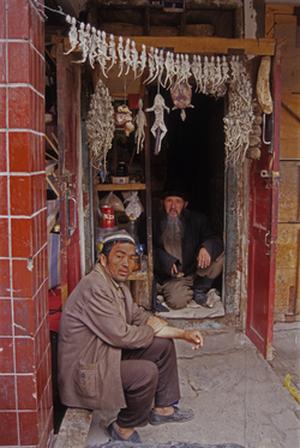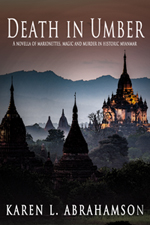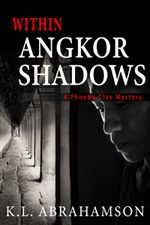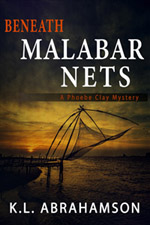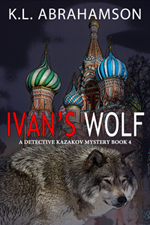Choosing an Agent (Or why any agent may be the last thing you want)
Okay, I’m headed off to Peru to climb the Inca Trail. The only problem is the Peruvian Government now only allows 500 people a day on the trail and ONLY if with a sanctioned guide. This is a problem. This means I must decide who is going to help me climb that mountain. Do I just go to a travel agent and have them book the trip? Do I just choose the first guide off the internet? Do I talk to one person and make a decision?
No. And no. And no. I want to plan my own trip, so first I have to decide what I want in an agent.

I’ve had this discussion many times with my parents who also like to travel. They like a travel agent who they can visit. They tell the agent generally what they want to do and the agent makes all the arrangements. Which means that the agent also makes all the decisions. Which has resulted in some pretty stupid oversights over the years – like my parents being stuck in veritable monsoons in Portugal unaware that their plane tickets gave them the privilege of escaping anywhere else in Europe at no cost. Or arriving for a second honeymoon in a beachfront hut in Tahiti, only to find that beach front and ocean view are two different things entirely. (They had a lovely view of the manure filled beach stables, however.)
So I tend to opt for taking a little more control in the travel situation.
For a trip of this nature I know there are plenty of agents to choose from. Go on-line and search Machu Picchu Tours and your search engine will indicate there’s 588,000 results. Not exactly how I want to spend my evenings. So I develop criteria. This is where you need to be self aware enough to know what you want. So my criteria are (in no particular order):
1. Experience delivering the service – how long have they been in business.
2. Client feedback
3. Local Peruvian connections
4. Size of group they usually take
5. Type of group they focus on
6. Knowledge of the area and culture
7. They speak English.
If you look at this list you are going to see a lot of similarity to considerations you should make when searching for a literary agent. If you want a literary agent (and this is an ‘if’ in this day and age. If you’re not sure what I’m talking about I direct you to a blog here).
So how long has a potential literary agent been in that line of work? Too long? Are they about to retire? Or are they young and hungry, but likely to drop out of the business when they find out how tough it is out there? You need to balance both these issues to find someone who might be appropriate to represent you. If you want an agent.
What are prior customers saying? Sure, you can depend on what the company posts, but look elsewhere as well. Editors and Predators, for writing, but also search for tour company recommendations.
For this trip I want a company that is locally based, instead of European or American. Yes, an American company may be well established, but does it give back to the local economy? Is it run environmentally and does it help the local people? A company with these sorts of links is also likely to meet my need for the guides to be culturally-based, because this is important to me. I want to hear what they think. I want to hear their stories and hear what they know about the environment I’m travelling in.
From a writer’s perspective considerations of this nature mean does the agent have New York connections? Sure the internet means anyone anywhere can make contact with New York editors, but if the agent is New York based, they are going to know the publishing culture – at least their part of it. (For more on this, see here, and read the comments as well)
Knowing who they usually serve as clients will help you know whether the tour group will fit you. I don’t want to travel the Inca trail with people who want to party all the way, but neither do I want to hike the trail with people who are going to complain it’s too hard. So I need to check the ages of people who travelled with a company. I need to check the photos on their websites.
With agents you need to know whether their model of agency works for you. Are they agents who provide editorial services, or are they agents who focus on sales. Your choice about what you prefer, but be clear about what it is you want and ask about it. (If you don’t understand, why, read that blog I mentioned.)
Size of group gets at whether I’ll be travelling with a group of 4-8 or a group of 17. Guess which size I’d rather travel with as an independent traveler? Smaller group means it might be a trifle harder, I might have to carry more, but it also means more opportunity to do what I want, instead of being dragged behind a larger group.
With an agent, it’s important to know how large their client list is and who their client list is. If they have a large list will they have time for you? If they have a NY Times best seller client, will they have time for you? Think about this. You shouldn’t need to have your hand held, but you should be able to get electronic correspondence from your agent in a timely fashion.
Lastly, I’ve listed English speaker. Why? Because I speak English and part of my reason for travel is to speak to people of another culture and learn. Yes, I should learn Spanish, but I won’t be fluent by the time I leave, so this is the next best option.
For an agent you need to be sure that you speak the same language. You need to be certain that you both have the same understanding of what you want from your agent—or not.
So I’m down to two possible companies to choose from. One is LlamaPath and the other is United Mice. Both fit my Peruvian criteria and both have been around for a few years. Both were professional and sent information to me quickly after I queried. Tonight I make the final decision and commit myself to my faithful guide.
But only because I have to have a guide.
